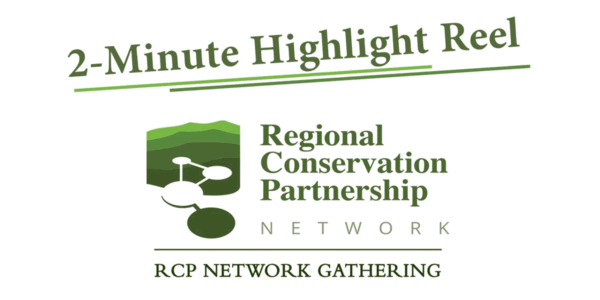Highlights from the 2023 RCP Network Gathering
From the keynote panel and 17 workshops to the conversations over lunch and coffee, some 320 people from two countries, 16 states, and 27 Regional Conservation Partnerships (RCPs) gathered for the first time in four years at UMass Amherst on November 9 for the 14th annual RCP Network Gathering.
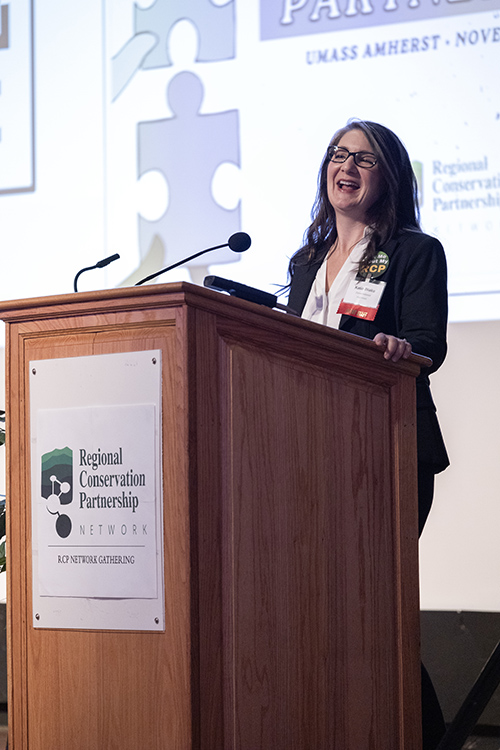
In her opening remarks, Highstead Conservationist Katie Blake said we must embrace complexity and acknowledge that no single sector or discipline holds all the answers – that it’s “only through authentically and deeply working together across sectors that we can bring about positive and equitable change for both nature and all people.”
The keynote panel discussion, moderated by Highstead Director of Conservation Bill Labich, was based on advancing lessons learned from previous years’ Gatherings. He asked panelists, “Why are we talking about integration, coordination, and collaboration around issues like climate change, biodiversity, and land justice? And, what does integrated, climate resilient, and just land use look like? We know that land conservation is part of a more complex land system that includes land ownership, land-use planning, regulation, and development built on a system that has been unjust for hundreds of years, but how do we and how do networks of conservation partners begin to tackle this?”
Solutions to these challenges exist in our own backyards, said Keynote Panelist Forrest King-Cortes, director of community-centered conservation for the Land Trust Alliance. Success is based on “our willingness to show up as allies and support the work already being done,” he said. “Our ability to partner with others depends upon our investment in DEI [Diversity, Equity, and Inclusion] in ourselves and our organizations, especially trusted relationship building. We can’t hope to build new partnerships and engage communities without leaning in and doing the pre-work.”
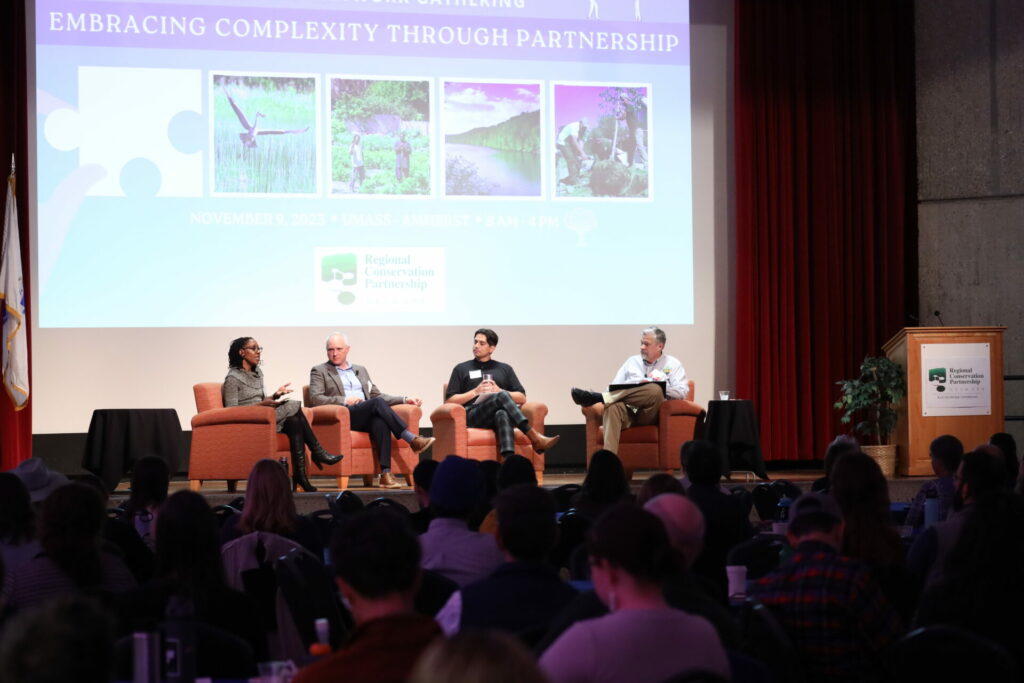
It’s not about bringing more diverse people to the table, he said. It’s about making space at the table, welcoming the expertise of others, and being willing to listen and receive that perspective. Slow, authentic relationship building is essential to building trust, said King-Cortes, a champion for the conservation movement elevating more leaders of color, LGBTQIA+ people, and people with disabilities to make communities more inclusive and welcoming.
It’s essential to integrate the meaning of partnership and develop deep, sustained relationships so people can learn from each other, said Keynote Panelist Onika Abraham Lee, executive director of the Blue Sky Funders Forum and former leader of Farm School NYC for adult students in sustainable agriculture and food sovereignty.
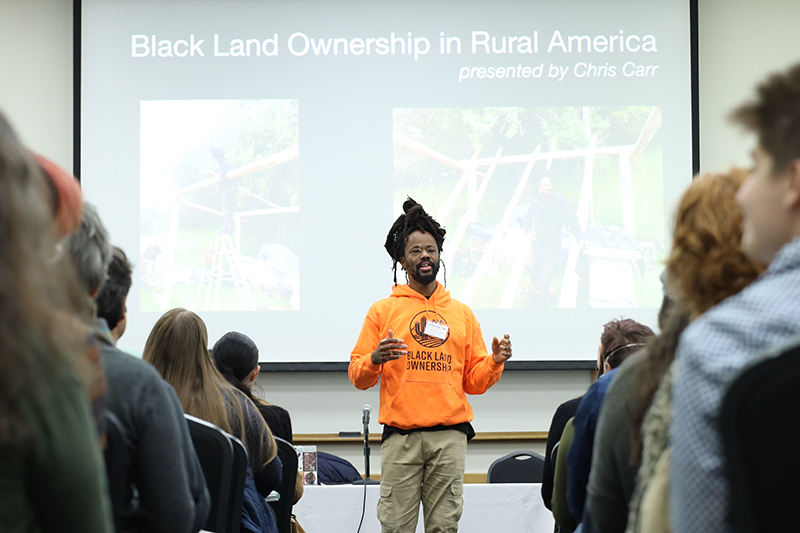
True partnership is “when the larger partners go out into the community and sit alongside networks and organizations that exist, see what is bubbling up. Take into account what work is already being done,” Abraham Lee sugested. “How can you go to their table? How can you lift up what is being said within those communities? Channel money and power into those efforts.”
RCPs are in an ideal position to do this work because they comprise multiple groups across a region and have local connections vital to addressing these cross-sector challenges, said Keynote Panelist Sasha Spector, director of the Doris Duke Foundation’s grant making on climate change, land conservation and stewardship, and inclusive conservation. “RCPs can think bigger and interact with individual actors on the ground,” he said. Getting to a master plan approach to solving these complex problems, he said, is “only going to happen from the bottom up.”
Following the keynote panel, participants spent the remainder of the day attending workshops delivered by their peers, learning how organizations are implementing the values of DEI through their initiatives, hearing from network leaders about their efforts to embrace complexity at a regional scale, and gaining new knowledge and skills to support their conservation work more effectively. Participants also got a chance to meet with RCP leaders in their state during a poster session held throughout the day.
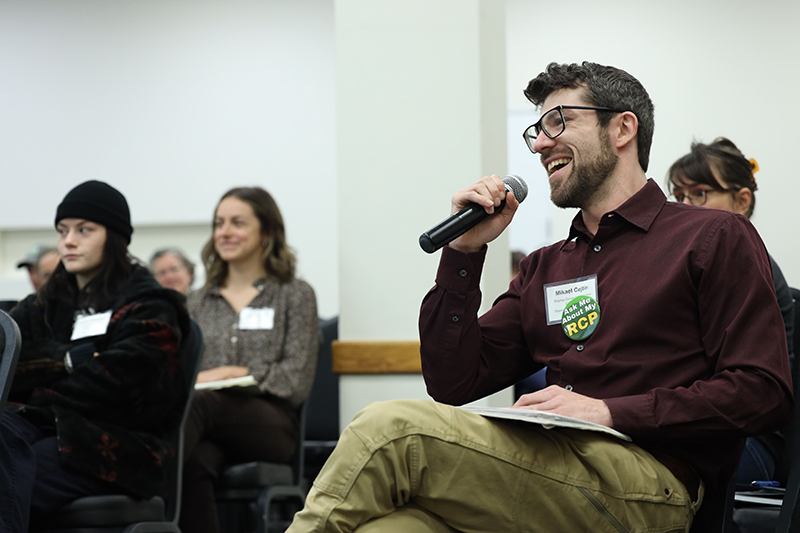
Attendees left fired up with both concrete tools and inspiration from speakers and presenters. People acknowledged the loneliness of the pandemic isolation, expressed joy at seeing old friends, and left with a sense of affirmation for and rededication to their work.
